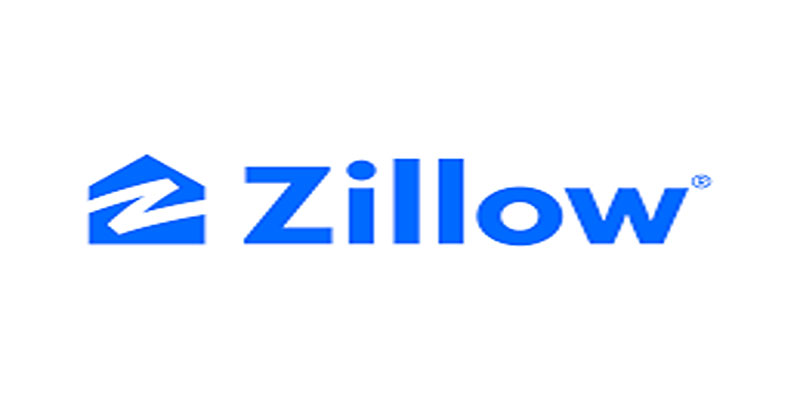
Why is Zillow free yet one of the industry's most profitable real estate businesses?
Many people are curious about this question, and we're here to explore why Zillow has maintained its position as a leader in the market while still providing a cost-free service.
In this post, you'll learn what business model enables Zillow to generate revenue without putting any financial stress on their users.
We'll explain everything from advertising income and lead generation fees to media partnerships and technology advances that have impacted their ability to make money while remaining a no-cost platform for millions of home buyers and sellers worldwide.
What is Zillow?
Zillow is an online real estate marketplace with millions of listings and information about homes, neighborhoods, and local markets. It provides users with tools to search for properties and compare the values of different homes.
Zillow also offers mortgage advice, estimated home values, and rental pricing estimates.
Premier Services for Real Estate Agents
Zillow makes money by offering premium services to real estate agents. Agents can purchase advertising packages, real-time leads, and other products, increasing their visibility on the site and generating more business from buyers.
Zillow also charges a subscription fee for access to its analytics platform, "Zestimate,” enabling agents to better track and target potential clients.
Advertising Income

Zillow’s primary source of income is advertising. Ads are placed on the site, in emails, and within the Zillow mobile app. These ads are typically tailored to the user’s geographic location and search criteria, meaning they get more precise and relevant ads as they browse the site.
Lead Generation Fees
Zillow also generates revenue from lead generation fees. Whenever users contact an agent or sign up for a service through the platform, Zillow collects a fee for passing on that lead. This is important to help offset the cost of keeping the platform free for all users.
Technology Advances
Finally, Zillow’s success can be attributed to its adoption of technological advances. With advanced data analysis, machine learning algorithms, and artificial intelligence (AI) capabilities, the platform can provide more accurate results for users and help agents generate more leads. This helps make it a leader in the real estate industry and drives more traffic to the site.
Ad Sales to Mortgage Lenders
In addition to the main sources of income outlined above, Zillow also sells ad space to mortgage lenders, renters insurance companies, home services providers, and more. This provides additional revenue for the company and keeps their service free for users.
Threats to Zillow’s Revenue
As with any business, there are certain threats to Zillow’s success. Competitors such as Redfin and Trulia could take market share away from Zillow if they offered more competitive pricing or better services.
Additionally, the rise of other real estate tech startups is a potential threat to the company’s dominance in the market.
The Zillow Business Model
Zillow’s business model is based on providing a free platform for home buyers and sellers while still generating enough revenue to remain profitable.
This includes three main sources of income – advertising, lead generation fees, and technology advances – plus additional revenue from mortgage lenders and other partners.
By leveraging its large user base and data access, Zillow has successfully monetized its platform and remains a leader in the real estate market.
Zillow Company History
Zillow was founded in 2006 by Rich Barton and Lloyd Frink. After spending time in the corporate real estate, they created a more modern platform where buyers and sellers could connect.
Since then, Zillow has grown rapidly with the help of strategic media partnerships, technology advances, and acquisitions.
The company went public on the NASDAQ in 2011 and has continued expanding its services and tools. Today, it is one of the largest real estate websites in the world.
Mortgages Segment
In 2015, Zillow acquired Trulia and combined the two companies into a single platform. This allowed them to create a new segment called mortgages which offers users access to lenders and loan programs.
This segment has become increasingly important as it helps grow Zillow’s revenue stream by connecting buyers with lenders who offer loans.
In addition, the company has also leveraged its data analytics capabilities to create new products such as Zestimate, which helps agents track potential clients. This has been key in driving the company’s growth and success.
Zillow Funding, Valuation

Zillow has received $107 million in funding from multiple investors. This includes investments from Microsoft, Goldman Sachs, and Benchmark Capital.
In 2017, the company was valued at $8 billion and reported a revenue of $1.3 billion for 2018.
Over the years, Zillow has become one of the world's most successful online real estate platforms.
The company continues to innovate and expand its services and tools, which is key to maintaining its position as a leader in the industry.
Zillow makes money by selling advertising.
Yes, Zillow does make money by selling advertising. It sells ad space to mortgage lenders, renters insurance companies, home services providers, and more.
This provides additional revenue for the company and keeps their service free for users.
Additionally, it also generates income from lead generation fees and technology advances.
By leveraging its large user base and data access, Zillow has successfully monetized its platform and remains a leader in the real estate market.
FAQs
What is the Future of Zillow?
The future of Zillow looks bright. As the company continues to innovate and expand its services, it will likely remain a leader in the industry for years to come.
Additionally, its large user base and access to data will continue to help it monetize its platform and generate revenue.
What are the best sites to find houses for rent?
Zillow, Craigslist, Trulia, HotPads, and Rent.com are some of the best sites to find houses for rent. Each site offers a variety of listings and tools to help you find the perfect rental property.
What is Zillow's competitive advantage?
Zillow’s competitive advantage lies in its large user base and access to data. It uses this data to create tools such as Zestimate, which helps agents track potential clients.
This has helped the company maintain its position as a leader in the industry.
Conclusion
Zillow is one of the leading online real estate platforms. It sells advertising, generates lead generation fees, and utilizes technological advances.
The company has received $107 million in funding from multiple investors and is valued at $8 billion. Its large user base, access to data, and innovative tools have helped it remain a leader in the industry.
Zillow’s future remains bright as it continues to innovate and expand its services. This will help it maintain its position as one of the world's top online real estate companies.



